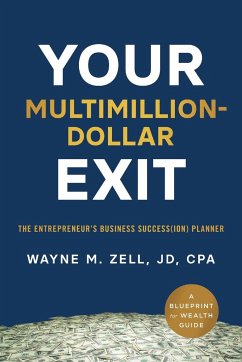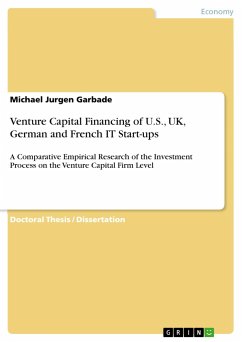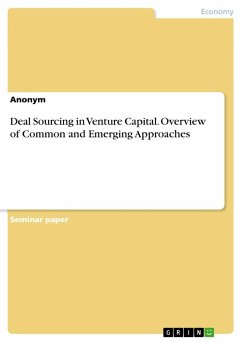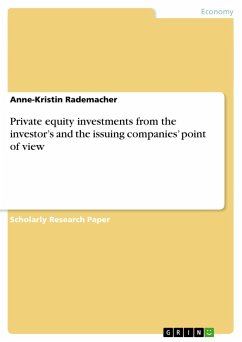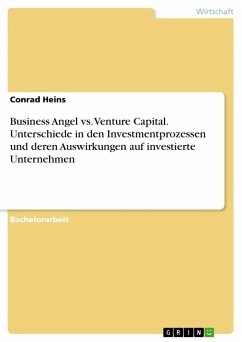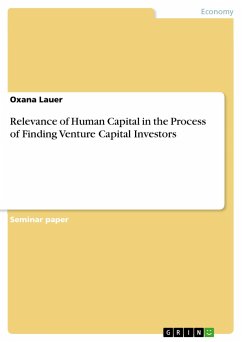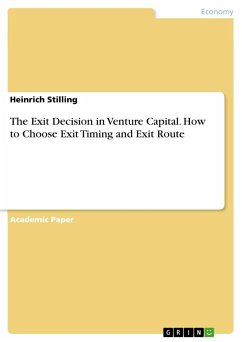
The Exit Decision in Venture Capital. How to Choose Exit Timing and Exit Route

PAYBACK Punkte
0 °P sammeln!
Academic Paper from the year 2014 in the subject Business economics - Investment and Finance, grade: 1,7, Technical University of Munich, language: English, abstract: The focus of this paper lies on answering the questions, what factors should be considered to successfully exist a venture with regard to exit timing and routing and how these strategic choices are interrelated. The divestment process plays a critical role in the Venture Capital (VC) business model. Typically, a VC invested venture is not able to pay dividends prior to its exit as the business has not fully matured yet. Therefore...
Academic Paper from the year 2014 in the subject Business economics - Investment and Finance, grade: 1,7, Technical University of Munich, language: English, abstract: The focus of this paper lies on answering the questions, what factors should be considered to successfully exist a venture with regard to exit timing and routing and how these strategic choices are interrelated. The divestment process plays a critical role in the Venture Capital (VC) business model. Typically, a VC invested venture is not able to pay dividends prior to its exit as the business has not fully matured yet. Therefore, a Venture Capital Firm (VCF) generates virtually all of its income by realizing capital gains at the time of the venture's exit. This indicates that a VCF heavily depends on a successful divestment transaction - in most cases, a poor exit execution leads to an inferior return on investment which in turn can ruin the VCF's overall performance. A VCF therefore plans its exits carefully and evaluates its strategic choices. In this context, the two most important exit decision variables considered by a VCF are the choice of exit route and the choice of exit timing. By choosing the right exit route and pursuing good exit timing, a VCF can significantly increase its proceeds for a given venture. The primary focus of this paper lies on answering these aforementioned questions by drawing together the empirical research on these two dominant strategic exit choices.





